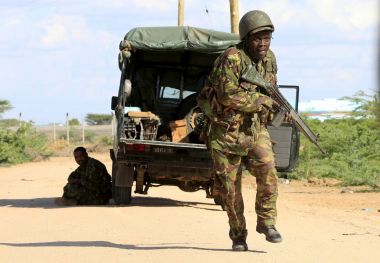Kenyan government name drops alleged mastermind of university attack

The Kenyan government has made public the mastermind behind the attack on the University of Garissa that killed more than 100 Christians.
On Holy Thursday, four armed gunmen stormed the University of Garissa and singled out the Christian students. The gunmen then killed them, but spared their Muslim counterparts. The death toll from the attack reached 147 students.
Al-Shabaab, a Somalian militant group, claimed responsibility for the attack and said that it was in retaliation for Kenya's support of the African Union peacekeeping force that is currently fighting against the extremist organisation in Somalia.
The militant group warned on Black Saturday of "another bloodbath" in Kenya.
The university attack prompted the Kenyan government to launch retaliatory airstrikes at known al-Shabaab training camps near the border between the two countries.
Fear of new attacks after the militant group's warning forced churches in Kenya to hire armed guards to protect themselves during Easter Sunday services.
According to CNN, Kenya's Interior Minister posted a tweet on Sunday offering a reward of 20 million Kenyan shillings (around £144,000, $215,000) to people with information that could lead to the arrest of Mohamed Mohamud, also known as Dulyadin and Gamadhere.
The Minister specifically pointed to Gamadhere as the mastermind of the Garissa university attack.
"We appeal to anyone with any info on #Gamadhere to share with relevant authorities and security agencies," the Minister requested.
According to a document provided by the Ministry, Mohamud is in charge of al-Shabaab's operations in Kenya. He also commands the militant group's forces along the Kenya-Somalia border.
In addition, CNN reported that Mohamud has "an extensive terrorist network (operating) within Kenya" that extends to the Dadaab refugee camp in the northeastern regions of the country.











